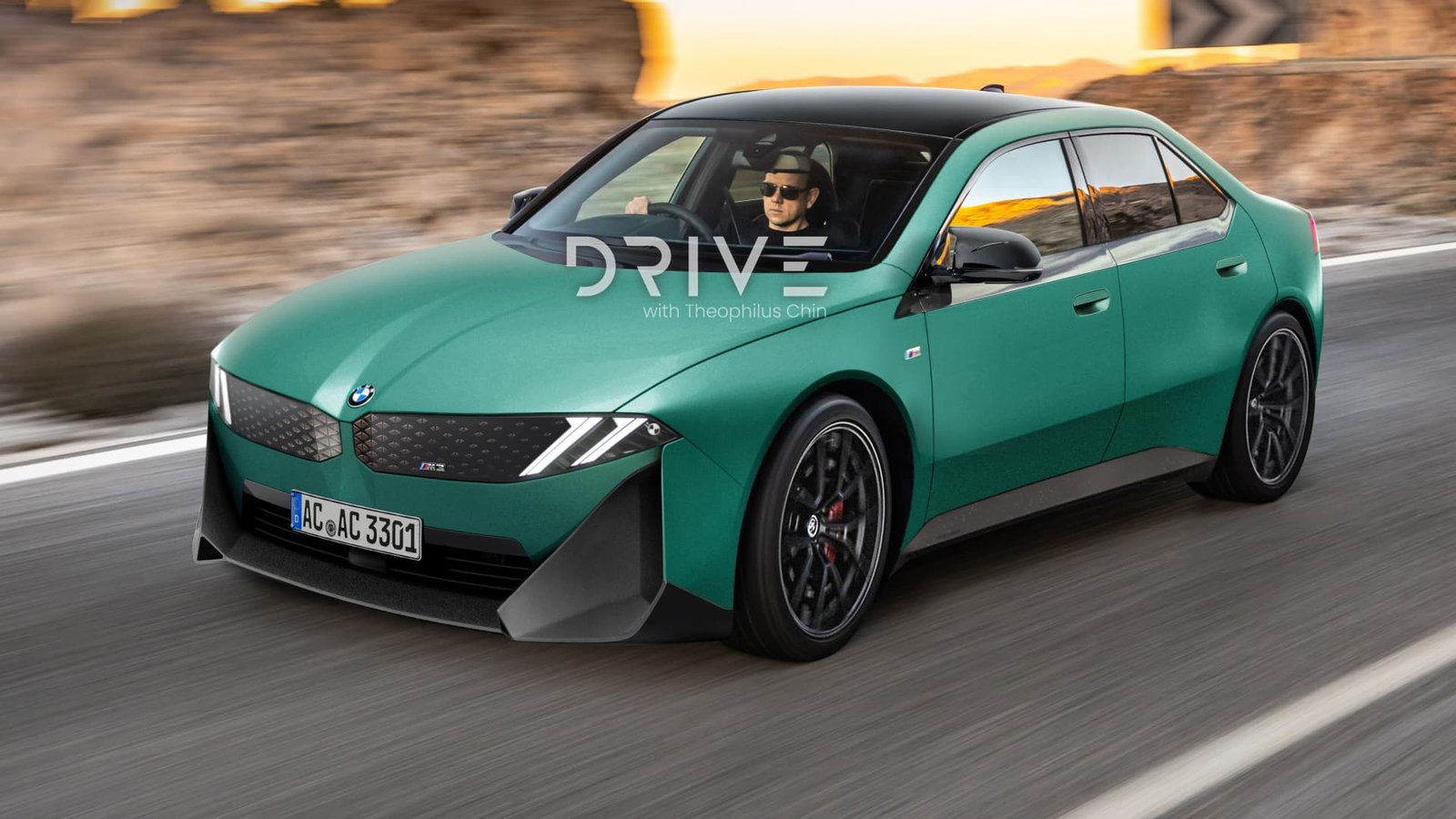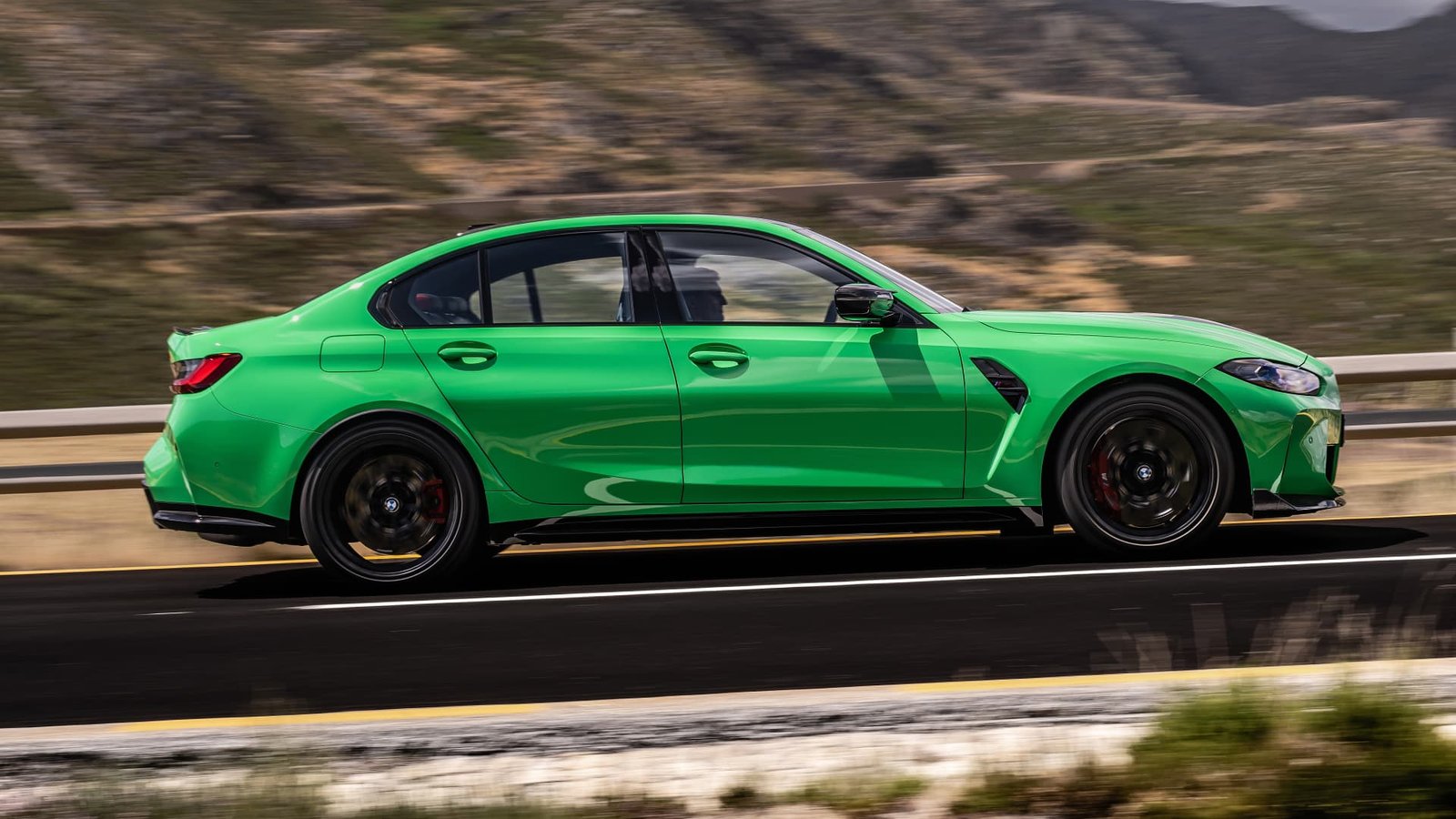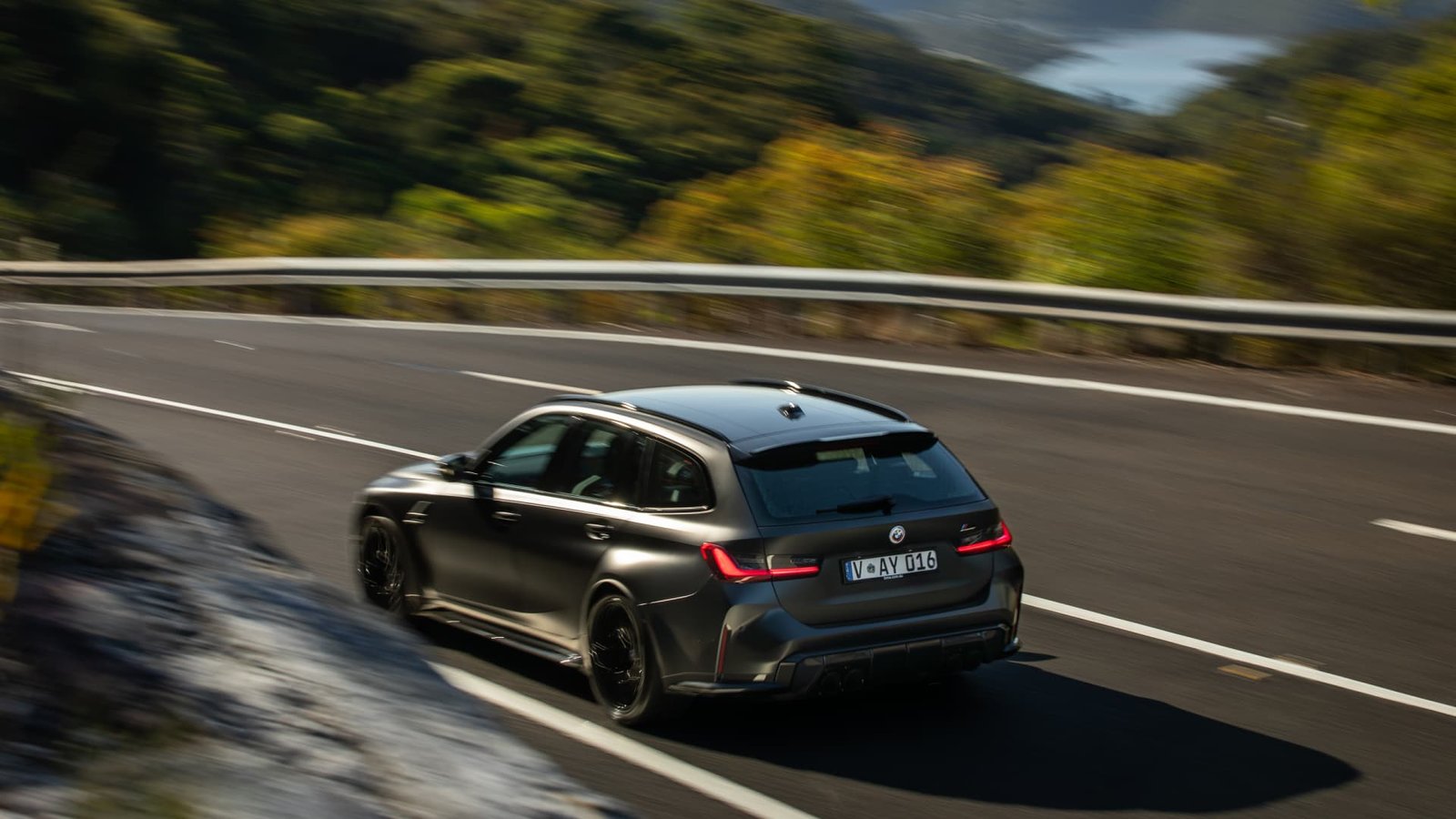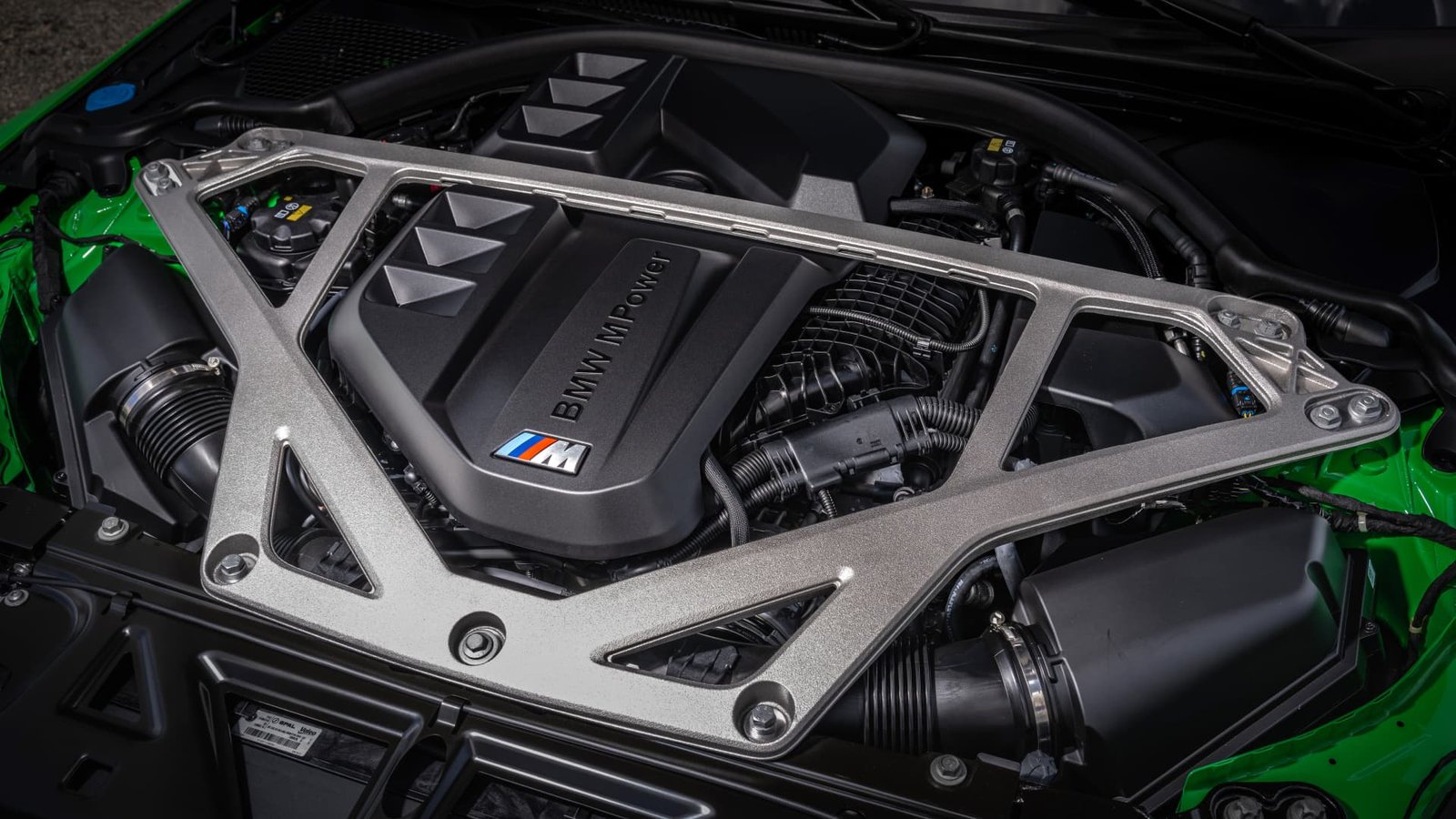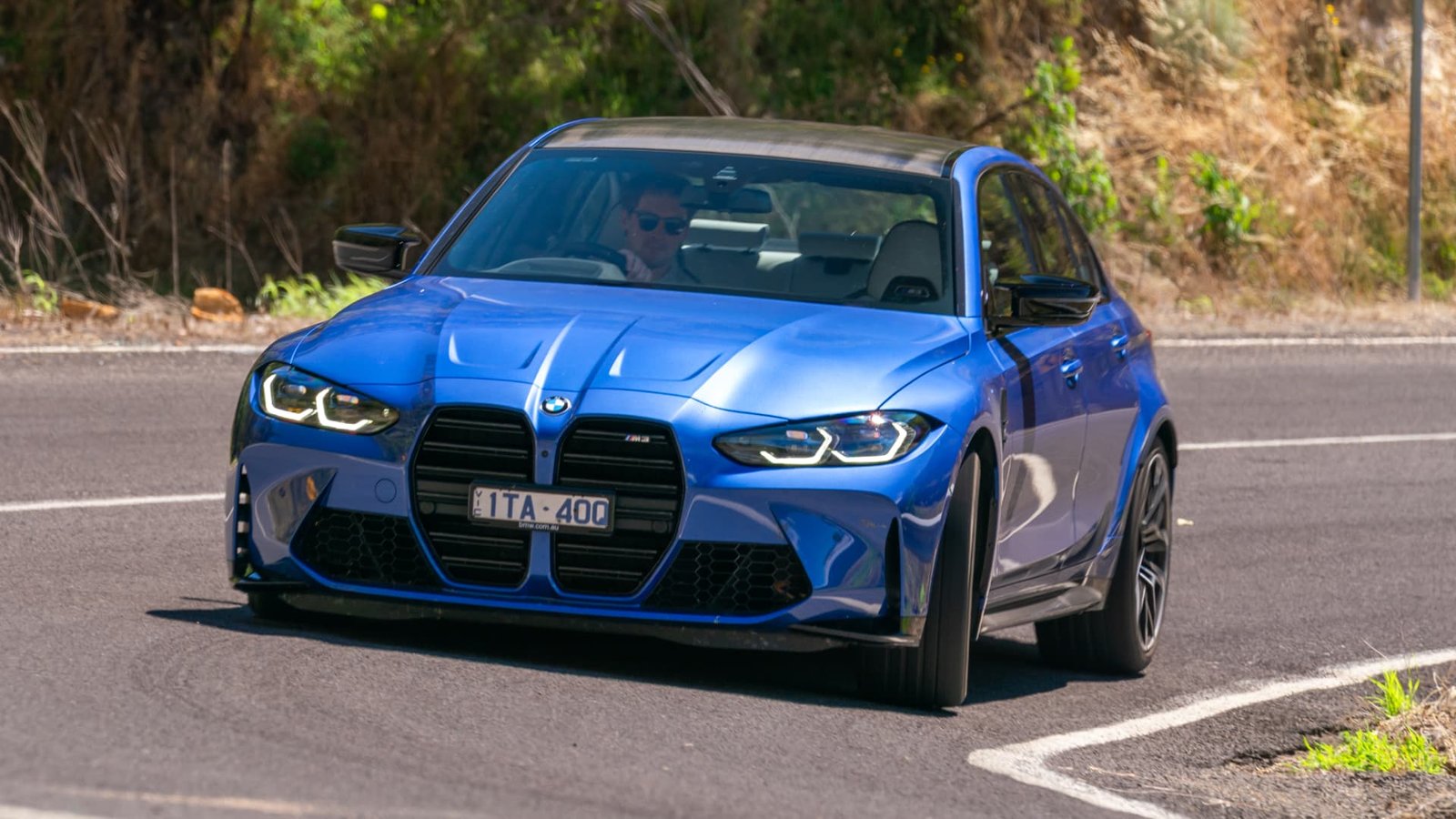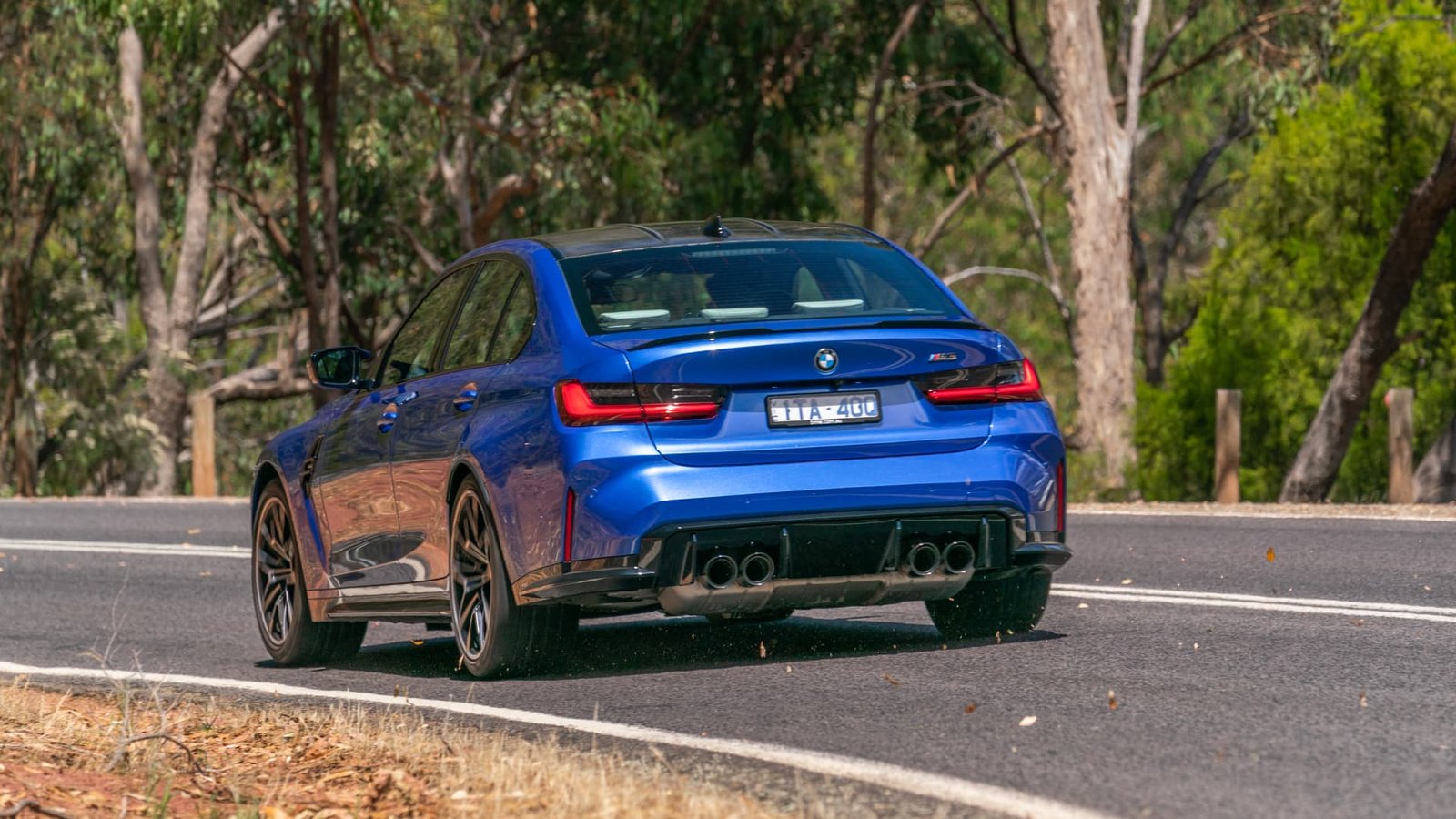[bsa_pro_ad_space id=14]
The next-generation BMW M3 will make the dramatic switch to full battery power with four electric motors when it arrives in 2027 – and the wagon is poised to return for another run.
The next-generation BMW M3 super sedan is poised to make the switch to electric power when it arrives in 2026 or 2027, the car maker has confirmed.
And BMW insiders claim the M3 Touring has been green-lit for a second generation, after the early success of the first and last model with petrol power that is in showrooms now.
BMW research and development boss Frank Weber confirmed to an international media conference last week the next M3 would make the switch to electric propulsion with four electric motors and up to 1000kW.
“The next M3 will be battery-electric – full battery-electric,” Mr Weber said, as quoted by UK publication Autocar.
The battery-powered M3 is planned to use one electric motor on each wheel, in conjunction with a new vehicle electronics system dubbed the “Heart of Joy” that varies how much power is sent to each wheel.
The quad-motor drivetrain can develop up to 1000kW – or one megawatt (1341 horsepower) – however sources cited by BMW Blog claim a combined figure closer to 520kW (700 horsepower) for the showroom model.
Mr Weber did not say which body styles the new M3 would be offered in – or specify a launch date.
However BimmerPost forum user ‘ynguldyn’ – a reputable BMW insider with a strong track record for insider information – says there will once again be a choice of sedan or ‘Touring’ wagon bodies.
It follows the strong initial popularity of the current M3 Touring – the first of its kind in the M3’s near-40-year history, and seemingly the last with petrol power – which has had its production allocation increased twice due to high demand.
As previously reported by Drive, the next-generation BMW 3 Series range will be split, with a petrol model based on similar underpinnings to the current car – and an electric model riding on BMW’s upcoming Neue Klasse dedicated electric-car architecture.
According to ‘ynguldyn’, production of both petrol and electric versions is due to commence in November 2026, pending any delays.
Mr Weber told the media conference the electric M3 “will come not too far away from the initial launch of the [Neue Klasse] as a product line, and we’ve said we want to have it early and close to the [start of production] of the core model.”
He said “there will be a coexistence” between the petrol and electric M3 generations “which is necessary”, however he did not specify how much overlap there would be.
According to ‘ynguldyn’, production of the current BMW M3 sedan is scheduled to end in June 2027, followed by the M3 Touring in October 2027, and the related M4 coupe and convertible in June 2028.
The ‘S58’ twin-turbo inline six-cylinder engine in the current M3 and M4 will be engineered to meet Euro 7 emissions regulations due in Europe in 2026, and Autocar reports it is planned to remain into production into the 2030s.
However this may only be for the next-generation, petrol BMW X3 M performance SUV, which ‘ynguldyn’ says is in the works, based on the next-generation petrol and diesel X3 due in showrooms late next year.
The BMW insider reports an electric iX3 M (codenamed ZA5) is also planned on the Neue Klasse platform, as well as a related iX4 M coupe SUV version (ZA7) – alongside the electric ‘ZA0’ M3 sedan (imagined in this story by Theottle, top) and ‘ZA1’ M3 Touring.
User ‘ynguldyn’ claims a new M3 based on the next petrol 3 Series – codenamed G84 and G50 respectively – is “possible”, but after the latest announcement appears unlikely.
BMW M boss Frank van Meel told Drive earlier this year what powers the next M3 would not matter as long as it is “better” than the previous model.
“Well, the logic is quite easy. The next [M3] or [M4] has to be better than the current one. And if that can be done in an electric way, then probably it will go electric,” said Mr van Meel.
“If not, we will stay with [a] combustion engine. It’s quite easy. But of course we’re trying to make that happen as pure electric.”
When asked if a range of petrol, electric and plug-in hybrid power options could be offered, Mr van Meel said: “Well, I don’t think all three [options]. That will be a little bit too far.
“Actually, we would like to offer just one. But you never know.”
BMW currently offers a high-performance version of the i4 electric car, but while its 400kW power output is similar to today’s 375kW M3 Competition, it is a less extreme ‘M Performance’ model that has not been designed to offer the ultimate, race-track-ready performance of the M3.
[bsa_pro_ad_space id=15]


